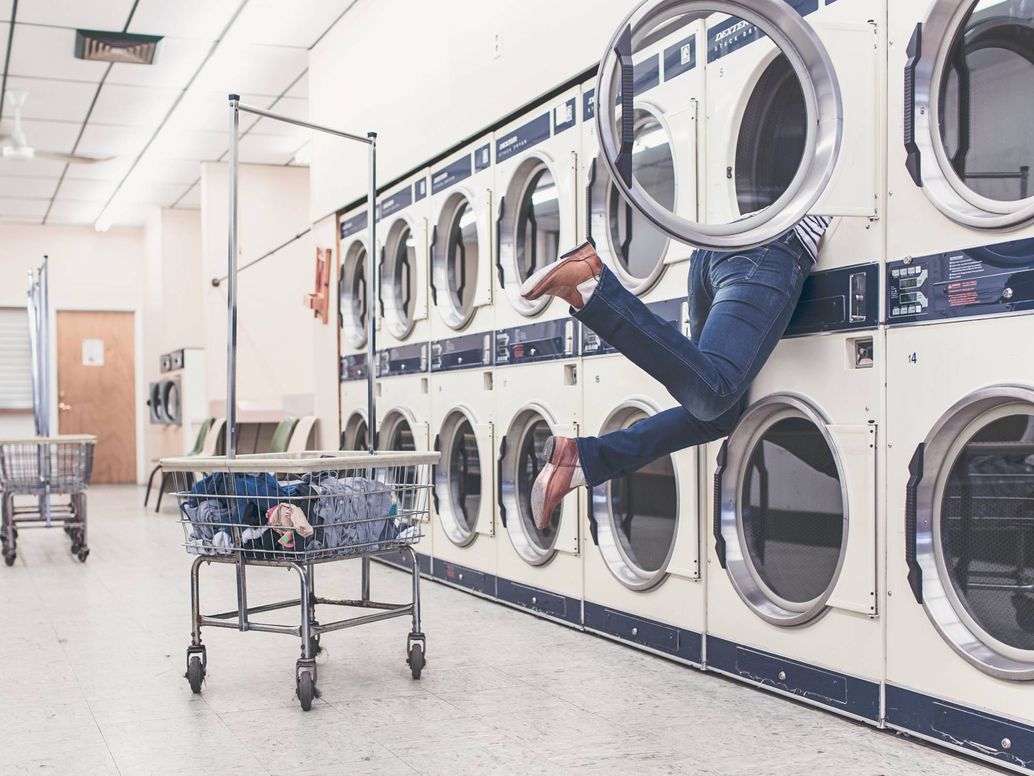Sometimes things just smell—it’s a fact of life. Maybe your mom stopped by your place with that friend who stinks like an ashtray, or your dog found something interesting to roll over on its way home. You probably have had to face a wide range of utterly insulting odors in your life, so before they make your house unlivable, you should learn how to eliminate them.
There are a lot of stinky offenders out there, but we decided to start with the top five smells Americans are trying to get rid of. Using Google Trends, we found the culprits of our nose’s worst nightmares. And even though searches differ depending on geographic location—not many people search how to de-skunk themselves in the coasts—apparently drenching our shoes with gasoline is a common mistake.
We consulted with experts to find homemade solutions for these stinkers, but you should keep in mind that there’s a limit to household products, and sometimes you just have to go for more concentrated, specialized solutions.
Skunk spray may be one of the most putrid scents you’ll ever be unlucky enough to experience, but if you think about it, it may be one of the most effective and perfectly designed weapons in nature.
Before we go into how to get rid of this awful odor, let’s debunk a common myth: Tomato juice doesn’t work well against skunk spray. It might mask the smell for a while, but its ingredients won’t react to the mammal’s sulfuric compounds. (You can bathe yourself in Chanel Nº5 and get the exact same result.)
Keep in mind that depending on how much you were skunked, from what distance, and when the last time the mustelid sprayed its load was (they can take up to two weeks to replenish it fully), it’s possible you’ll need to repeat the cleaning several times. If the stench lingers, you might want to try a product specifically designed to counteract skunk odors.
This seems like an easy one, but searching the internet will render all sorts of recommendations, so we turned to the experts for the most straightforward answer.
Should your washing machine be the problem, run a cleaning cycle as directed by the manufacturer and, if possible, add bleach to it. The amount will depend on the care instructions for your particular machine, but it should be around half a cup. Do this weekly and then decrease the frequency over time as the mildew smell gradually fades. If this doesn’t do the trick, there might be some mildew around the seals of the door—the ACI recommends wiping them with a water-bleach solution with ¾ cup of bleach for every gallon of cool water.
Once you get the odor out, avoid a bacterial comeback by leaving the door of your washing machine open after every cycle to help it dry out.
The smell of cigarette smoke can stick to your breath, your hair, your clothes, and even the tips of your fingers. Usually, a regular cycle in the washing machine can eliminate the overwhelming odor from your garments—but if that doesn’t cut it, you might have to step up your attack.
First, leave your clothes to air dry outdoors so that the sun-ventilation combo can kill some of the odor. After that, try a regular washing cycle, this time adding ½ cup of baking soda. If the smell persists, or if your garment is too delicate to go in the washing machine or be exposed to sunlight for a prolonged period of time, then you’ll need the help of the dry cleaners.
Bonus tip: If people are smoking in your home, you might want to clean your light bulbs. The ACI explains that these gadgets can accumulate smoke particles and then release the smell of it back into the air every time they’re turned on and get hot. (It’s the same kind of physics behind your favorite aroma diffuser.) To prevent this, wait for your light bulbs to cool and then use a cleaning wipe on them. Finish up by opening windows for a fresh breeze or two. An easier, long term solution is upgrading to more energy-efficient LEDs—even if smoke particles get stuck in there, the bulbs will never get as hot as regular ones, so they won’t release any aromas back into the air.
According to Google, there are a lot of clumsy fire enthusiasts out there, or at least a lot of people who are messy at the pump. Regardless of whether you identify more with the first than the second, ruining your shoes by spilling gasoline on them happens to a lot of people.
As with most odors or stains of oily origin, getting the smell of gas out of textiles requires a lot of work and patience—and it may not even work. If your shoes or clothes reek of petrol, it means there’s still residual fuel embedded in the fabric. That’s a big warning sign to not put them in the washing machine or dryer, as it can result in a fire or explosion.
If you don’t have any emotional attachment to your gasoline-smelling garments, the best solution is to just throw them away. If, on the other hand, you cannot picture your life without those old Chuck Taylors, roll up your sleeves and take a giant breath. This is going to take a while.
With gasoline, you have to go straight for the big guns. The ACI recommends soaking your garments in a strong degreasing product, like a powerful, industrial dish soap, and leaving them in a tub outside. If you’re dealing with a fancy pair of shoes, check the fabric care labels and try a patch test on the inside to make sure you won’t melt them. Once it’s safe, soak them overnight in the degreaser and rinse with water in the morning. If the smell persists—which is likely—repeat.
Dogs are cute—until they pee on your carpet. If you look online, as many people across America have, you’ll find a lot of different methods to zap the lingering smell, with many involving some combination of water, baking soda, and vinegar. These ingredients might help at first, but as any dog owner knows, the smell of pee always comes back… Terminator style.
The main source of the pungent smell in your pet’s pee is uric acid, which isn’t just insoluble in water, but also tends to stick to porous surfaces like the fibers in your carpet. When using regular detergent or any combination of baking soda and vinegar, you’re fighting off the water-soluble components in urine. But humidity from the air and the cleaning solution crystallizes the uric acid, letting it live to fight another stinky battle.
Acting fast will give you the best shot at getting rid of eau de dog pee for good, but you’ll also need a strong chemical. The AIC suggests a product specially formulated to fight off pet pee stains, but you can also try an enzymatic detergent. These solutions use proteins to break down different components—uric acid among them—so it’s good to have it on hand if you happen to face an ugly stain or an offensive smell in the future. Before you use it, though, make sure you read the instructions of the product of your choice carefully, and test it on an inconspicuous spot of your carpet.
If you’re wondering whether enzymatic detergents will do the trick against cat pee, the answer is yes. But there’s one main difference. Even though cat and dog urine share the same stinky component (uric acid), it’s much more concentrated in felines, making their messes smell more like ammonia. Just as with dog pee, try a specialized product or go straight for the enzymatic cleaner. Chances are you’ll need to repeat the process a couple of times before your carpet stops smelling of kitty juice.
Source: The five smells Americans hate most (and how to get rid of them) | Popular Science

















